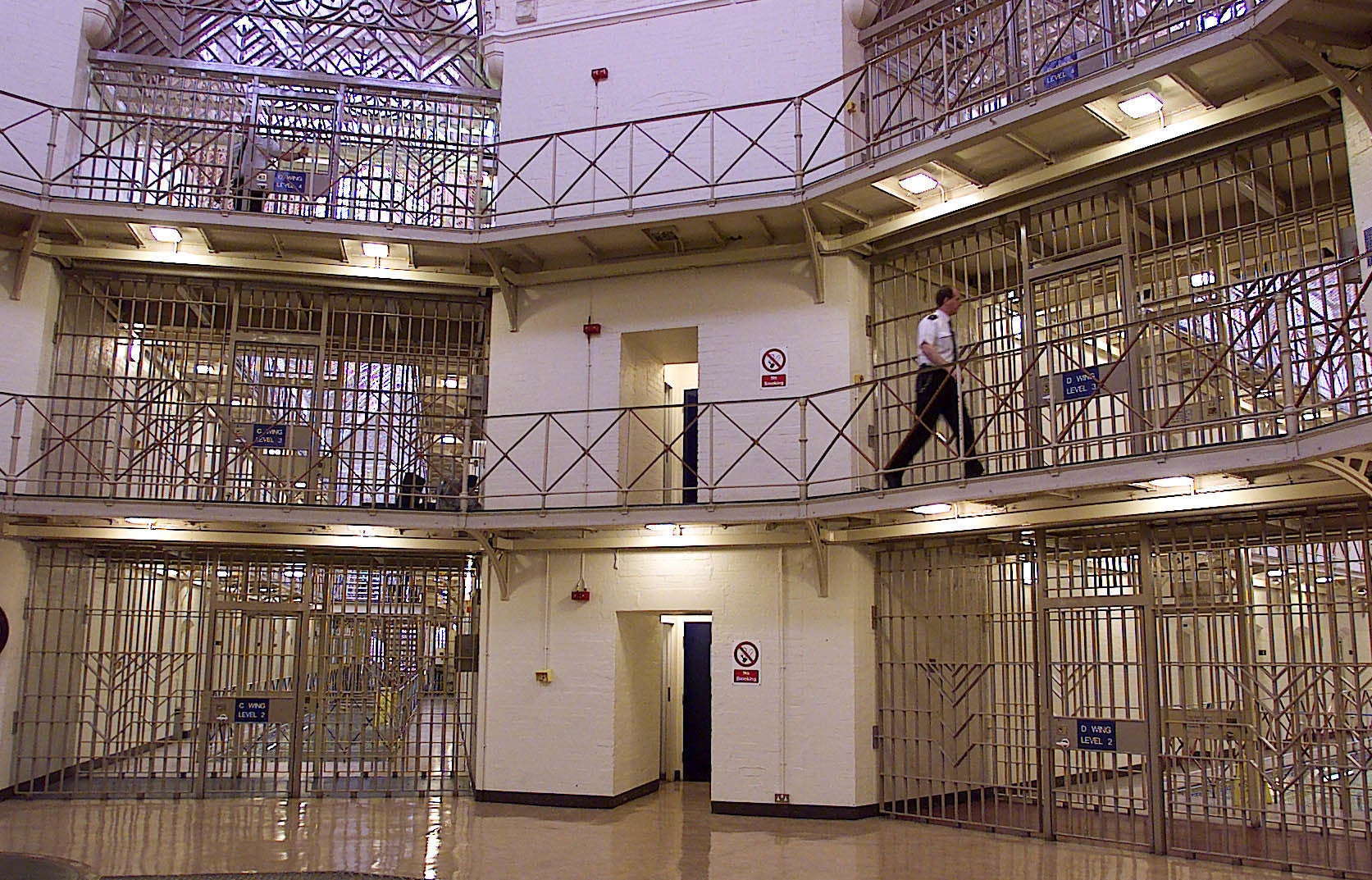‘Too little, too late’: Government threatened with legal action over response to pandemic in prisons
Confirmed coronavirus cases among inmates and prison staff more than double in 10 days

The government has been threatened with legal action from two leading prison reform groups over its “failure” to respond effectively to the coronavirus pandemic in jails in England and Wales.
A letter to the justice secretary, Robert Buckland, from lawyers acting for the Howard League for Penal Reform and the Prison Reform Trust, gives details of a proposed court challenge over his response to the need to reduce the prison population to “save lives and avoid a public health catastrophe”.
It states that in spite of government announcements – including introducing a temporary release scheme – the rate of releases from jail had been “too slow and too limited” to make any substantial difference to the prison population, and that this made the response ”unlawful”.
The number of confirmed cases has more than doubled in the space of 10 days. As of 5pm on Thursday, 255 prisoners had tested positive for Covid-19 across 62 prisons, along with 138 prison staff working in 49 prisons and seven officers in prisoner escorts and custody services. Sixteen people – 13 prisoners and three prison officers – have reportedly died.
The letter to Mr Buckland follows weeks of urgent correspondence between the Howard League and Prison Reform Trust and the government about the spread of coronavirus behind bars.
Last week, the charities urged ministers to move further and faster to reduce the prison population and avoid “an intolerable human cost in terms of the lives of both staff and prisoners”.
As of Tuesday 14 April, however, only 18 people had been released under the two schemes announced by the government in response to the crisis.
Earlier this week, prisons minister Lucy Frazer said “hundreds” more prisoners were to be released on Wednesday, but when The Independent approached the department they would not provide updated figures.
In the letter, the charities suggest a range of actions the government could take to address the problem, including expanding the scope of the temporary scheme, expediting the consideration of release of pregnant women and mothers, and considering the release of all children in custody in line with international guidance and law.
The Prison Governors’ Association has called for the prison population to be reduced by 15,000, which is understood to be in line with advice provided to the government by public health experts.
The charities handed ministers a report by Professor Richard Coker at London School of Hygiene and Tropical Medicine, which they said sets out the most up-to-date evidence concerning the nature, spread and transmission of coronavirus as it applies to prisons.
The report states the risk of exposure to the virus to prisoners and staff is “far, far greater” than the risks to individuals in the wider community, adding that social distancing and personal infection control measures are “almost impossible” in prisons.
It recommends that authorities “should consider alternative options to incarceration where feasible”.
Professor Coker’s report reveals that, as large shared spaces, prisons act as “epidemiological pumps” which can drive the spread of disease among the wider community, suggesting the consequences of further delay will be felt far beyond prison walls.
The charities argued England and Wales are out of step with many other countries that have taken decisive action to protect health and life. Northern Ireland is to release 200 of its 1,500 prisoners, while Ireland has released prisoners who had already been determined suitable for early release and France has released almost 10,000 people from prison in the past month.
Frances Crook, chief executive of the Howard League for Penal Reform, said ministers must “rise to this challenge and act immediately to avert a public health catastrophe”, warning “the rate of infection is accelerating, and the window of opportunity to protect people is vanishing”.
She added: “The secretary of state has accepted publicly that the number of people in prison must be reduced significantly in order to save lives. However, this has not – and cannot – be achieved by the measures that the government currently has in place.”
Peter Dawson, director of the Prison Reform Trust, said: “Everything good about government action in tackling this emergency has been characterised by being early and decisive. On prisons, by contrast, it is a story of too little, too late.
“The scientific and operational advice couldn’t be clearer – if ministers are serious about following it, they must go much further, and do it now.”
A Ministry of Justice spokesperson said: “We have robust and flexible plans in place keep prisoners, staff and the wider public safe based on the latest advice from Public Health England.
“As part of the national plan to protect the NHS and save lives, we have already announced up to 4,000 risk-assessed prisoners who are within two months of their release date will be temporarily released from jail, along with pregnant women.”
Subscribe to Independent Premium to bookmark this article
Want to bookmark your favourite articles and stories to read or reference later? Start your Independent Premium subscription today.

Join our commenting forum
Join thought-provoking conversations, follow other Independent readers and see their replies